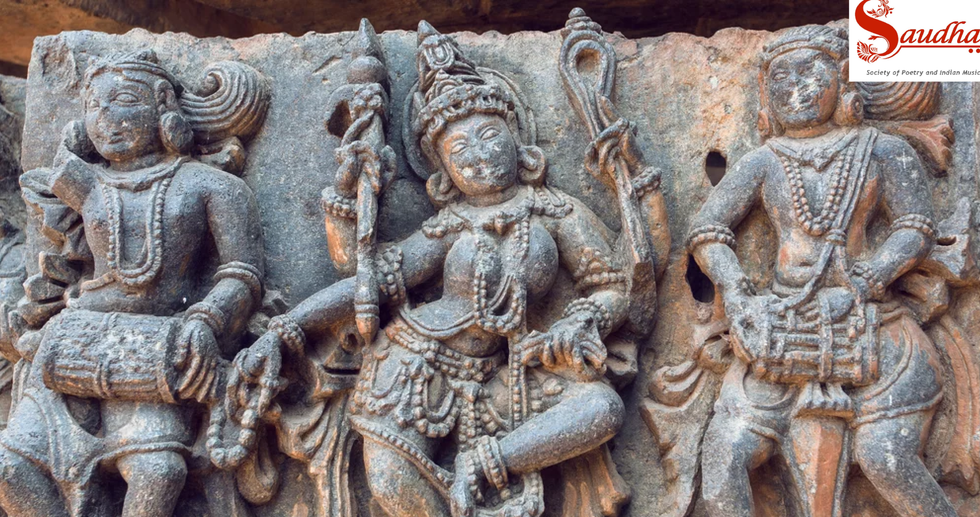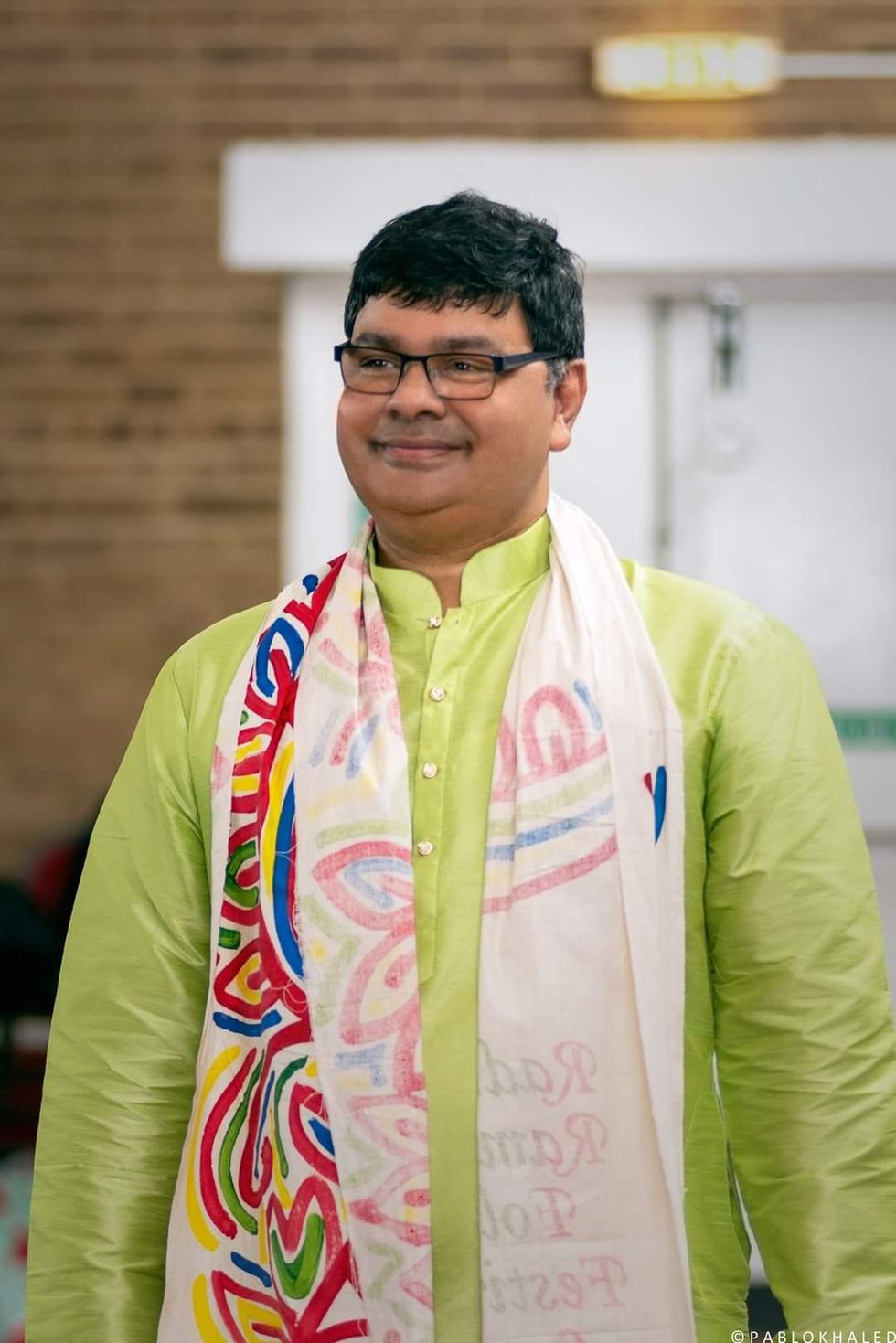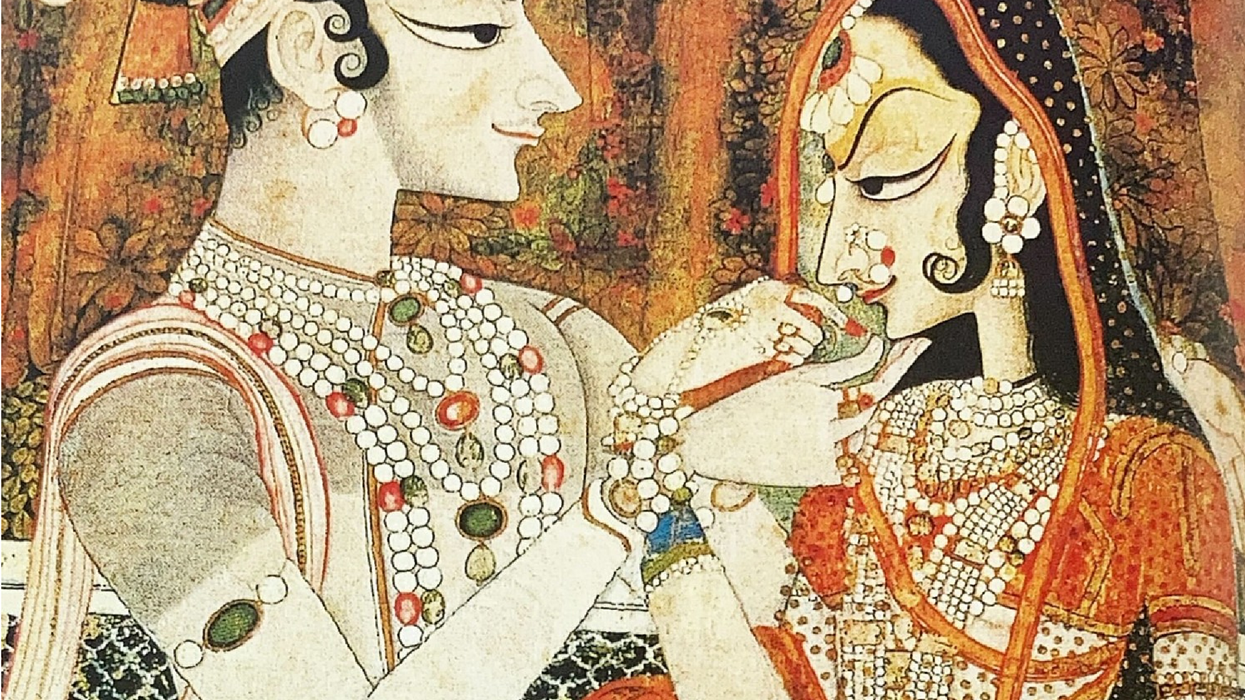MUSIC DIRECTOR Ahmed Kaysher has brought together artists from around the world to create “a new meaning of sensuality” through his show, Songs of Sringar and Seduction – Thumri to Troubadour.
Produced by Saudha, the Society of Poetry and Indian Music, the concert features fresh interpretations of erotic and sensual medieval music and literature from Indian and other cultures. The music will be performed by leading interpreters of these genres and accompanied by projections of ancient paintings and sculptures.
“In this hedonistic world, we quite selfishly see sensuality as just as gratification of your desires. But, through the journey of ancient art, we are trying to develop a new meaning of sensuality for modern times,” Kaysher, 47, told Eastern Eye.
“In Indian culture, for example, sensuality is known as sringar rasa. Rasa, meaning emotions, is important because what we try do with art is create different forms of rasa.”
The Sanskrit word rasa has many meanings, including emotion, mood and feeling. Sringar is one of the nine rasas in the Indian classical dance styles. It depicts love, art, beauty and spiritual devotion, and is considered to be the mother of all rasas as it gives scope to a range of other emotions such as jealousy, fear, anger, compassion and physical intimacy.
Kaysher said, “We have come to believe sensuality is just physical, somehow erotic or sexual. But sensuality is achieved through other means – spirituality, meditation, emotions are also a part of sensuality.”
He added: “Through all these traditions, music and poetry from different parts of the globe, we are trying to develop a new way of looking at sensuality.”
Songs of Sringar and Seduction – Thumri to Troubadour will feature a host of worldrenowned artists. They include Ziazan, the leading and last interpreter of Bel Canto (18th century Italian vocal technique); Chinese folk singer and guzheng (an ancient Chinese instrument) player Yijia Tu; Greecebased Lebanese-Canadian singer and multiinstrumentalist Lara Eidi; Indian classical singer Koyel Bhattacharya; Neapolitan troubadour singer Rossella Bondi; British south Asian singers Gouri Chowdhury, Farzana Sifat and Amith Dey; and Indian classical tabla player Kuntal Das; with poet and fictionist Shree Ganguly and Tanjina Nur-i Siddique performing the spoken word.
“Lara Eidi, for example, will be performing the Seikilos epitaph, the first ever musical composition that you can trace in history, going back 2000 BCE.
“We have Chinese music from 2,000 years ago, Arabian music that goes back to pre-Islam times and Vedic chants (which can be traced back thousands of years to Hindu mythology),” he added.
Saudha has provided a platform to bygone genres and art forms since its creation in 2011. The artists have performed all over the world, introducing people to different cultures through art.
“Saudha has been campaigning to create new audiences for classical art. We are trying to create a bridge for different art forms and trying to form a sort of profound communication for audiences,” said Kaysher.

Last year, Kaysher directed Frida Kahlo Through Indian Classical Music at the Royal Albert Hall.
In that collaborative fusion of painting and music, Saudha presented a reinterpretation of the Mexican surrealist painter’s universe of art through a visceral presentation of Indian classical music.
“Frida Kahlo had a dramatic life and the melancholy she experienced came out through her paintings. Indian classical musical is also a lot about melancholy, we call it karun rasa (sadness),” said Kaysher. “We projected the paintings of Kahlo, which almost represent the wailing of her heart, with these ragas (classical Indian melodies) that portray the lamentation of the soul.”
In 2021, Saudha’s theatrical performance marked the centenary of ground-breaking poems from two rich traditions of literature – The Waste Land by TS Elliot and Bidrohi (The Rebel), by Kazi Nazrul Islam, Bangladesh’s national poet.
“We ended up having more than 60-70 per cent non-Asians in the audience and they loved exploring the beauty of Nazrul’s Bidrohi,” said Kaysher.
“This has been Saudha’s goal since its inception, to introduce Oriental poets to Western audiences and to introduce south Asian audiences to great Western poets, musicians and painters.”
Kaysher said his idea to merge art from different cultures came from his own life of discovering artists from around the world.

Born and brought up in Bangladesh, he fell in love with the arts when he saw the works of celebrated Swedish screenwriter, film and theatre director, Ingmar Bergman.
His interest in Western classical music came from watching Bergman’s films, which then led him to discover south Asian classical music.
“I was listening to Yehudi Menuhin (violinist and conductor) and I saw some of the beautiful fusion productions by Menuhin with (sitar maestro Pandit) Ravi Shankar and (sarod maestro) Ali Akbar Khan and then I started exploring Indian classical music,” he said.
“I also found poetry was so close to what they were trying to develop. For example, I found the poetry of [Chilean] Pablo Neruda (Nobel Prize winner for literature in 1971) was so close to the raga that they (Menuhin, Shankar and Khan) were playing and the message they were trying to project to the audience.”
The emotions that the works from poets and musicians stirred up in Kaysher made him realise audiences could appreciate works from different cultures, he revealed. “The aim of art is to somehow introduce one human being of one continent to another,” he said.
“When people from a Western audience saw our production of The Waste Land and Bidrohi, they said, “you projected Elliot in a beautiful way”. But Elliot is also my poet as well because I grew up reading him, just as I did Nazrul. I don’t see Elliot as ‘other’.
“The same thing happened with Frida Kahlo. She portrays human emotions, universal emotions.
“When you look at art, you see a reflection of yourself. Even in a Mexican (Kahlo) painter’s work, or a Japanese writer’s work, Yukio Mishima, for example, who is one of my favourite writers – I don’t see them as ‘others’ because I can see the reflection of myself in their work.
“Art actually tries to remove that sense of foreignness and promote oneness.”
Songs of Sringar and Seduction – Thumri to Troubadour is set to be performed at the Elgar Room, Royal Albert Hall, in London next Monday (15)




